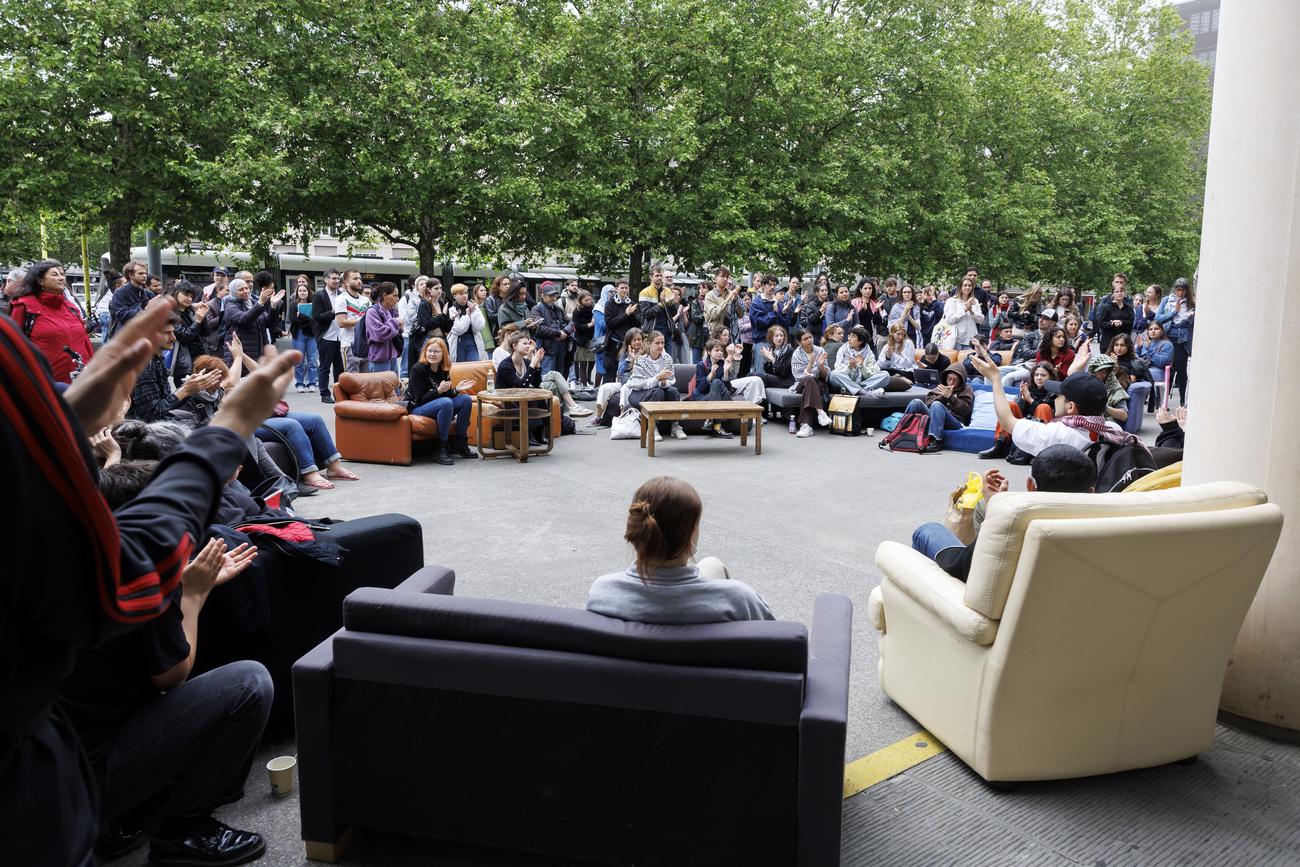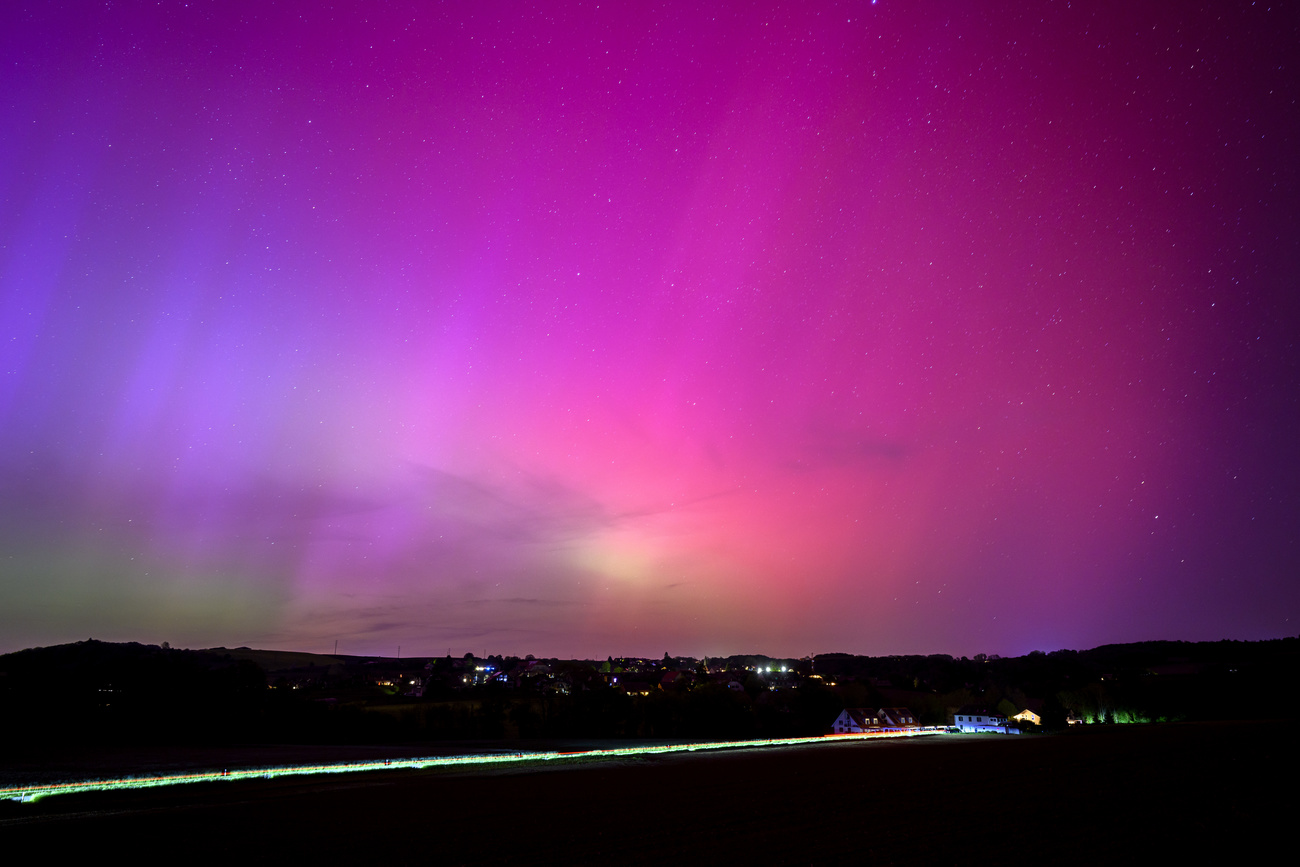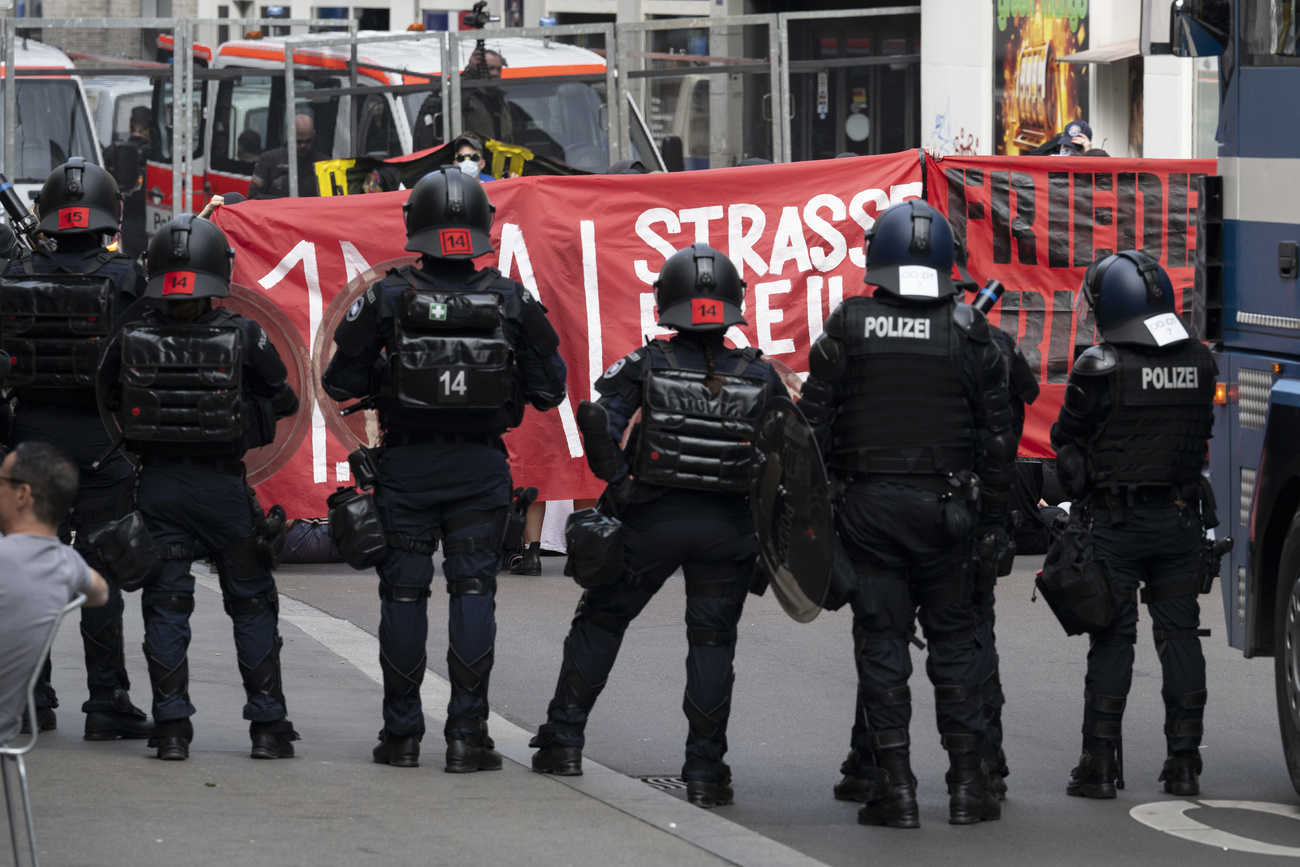
Switzerland Today
Greetings Swiss Abroad,
You’ve probably heard of the expression FOMO. The fear of missing out. Over the weekend, I had a sort of post-FOMO, after discovering parts of the Swiss sky had lit up with some spectacular aurora borealis and I’d missed it. It turns out there’s a good explanation for why I hadn’t even known about it in the first place. More on that in today’s briefing.

In the news: slightly fewer victims of human trafficking in Switzerland, climate change triggers hay-fever explosion, and more farmers are producing organically.
- A specialist unit for trafficked women in Switzerland says it recorded 238 cases of human trafficking in 2023, down from 259 the year before.
- According to new Swiss research, more people are suffering from hay fever, as plants stressed by poor air quality produce pollen that triggers stronger allergic reactions.
- Awareness of sustainability in the digital sector is still in its infancy: almost half of all Swiss citizens hang on to their old smartphones, tablets and laptops, says the Federal Statistical Office.
- More and more Swiss farms are producing organically and now cover a fifth of the utilised agricultural area.

Pro-Palestinian university students: from protests to arrests
The first student sit-ins in Switzerland over the war in Gaza, which began at the University of Lausanne (Unil) in early May, were low-key enough. Compared to scenes of police and demonstrators clashing on American college campuses, the Swiss students’ all-night occupation of university buildings was largely incident-free.
But that’s all changed. The protests have spread to more universities, and in recent days the debate has become more heated. The Swiss Federation of Jewish Communities claims universities are no longer safe for Jewish students. In Basel, protesters have accused university management of “intimidation tactics” to curtail their sit-in.
Then this morning, police were called in to the University of Geneva (UNIGE) to vacate around 50 protesters, some of whom were handcuffed and led away. UNIGE even filed a criminal complaintExternal link against the students for trespassing after they failed to abide by an ultimatum to leave.
The dialogue between Geneva students and university management had grown increasingly tense since the sit-in began a week ago. The UNIGE rector claimed the protest had been politically instrumentalised, pointing to ambiguous slogans and controversial banners that go beyond the students’ demands for an immediate ceasefire and cutting ties with Israeli institutes.
There have also been allegations of non-student participants joining the sit-ins, including politicians from the left and extreme left, various pro-Palestinian movements and Muslim feminist activists, RTS reports.
Even on the left, however, not everyone agrees on the nature of the protests. Social Democrat senator Daniel Jositsch, a law professor in Zurich, calls the Geneva sit-in illegal. “Universities must hold a neutral political discourse,” he tellsExternal link Le Temps newspaper, adding “these university sit-ins have nothing to do with freedom of expression”.
At the time of writing, sit-ins are continuingExternal link on other campuses, including Bern, Basel, Zurich and Fribourg. In Lausanne meanwhile, both Unil and EPFL students agreed to end their night-time occupation days ago. A discussion on the Unil students’ demands has been promised, while the EPFL says it will review its collaboration with Israeli institutions.

When the aurora borealis lights up the Swiss sky
Some lucky Swiss residents caught a spectacular light show in the night sky last weekend, after all the right conditions aligned to allow the aurora borealis, or northern lights, to appear further south than usual. But many more were not so lucky, either because they weren’t in the right location or they didn’t know the geomagnetic storm was about to happen. I count myself among the latter group.
But how can a journalist not be aware of upcoming events, I hear you asking. Well, a reporter at Le Temps newspaper has providedExternal link an explanation. It turns out that even the meteorological experts could predict the lights would be visible in this part of Europe only 24 hours in advance.
“On Thursday night, we were close to certain something important would happen,” says one forecaster. But he and his colleagues could only know of the intensity and effects of the meteorological events behind the northern lights just a few hours in advance. Only around 6:30pm on Friday did the forecaster know for sure that a “beautiful show” would happen that night. He himself made it just in the nick of time to see the show – after picking up some food for a late-night picnic and travelling an hour to the best possible viewpoint.

In compliance with the JTI standards
More: SWI swissinfo.ch certified by the Journalism Trust Initiative








